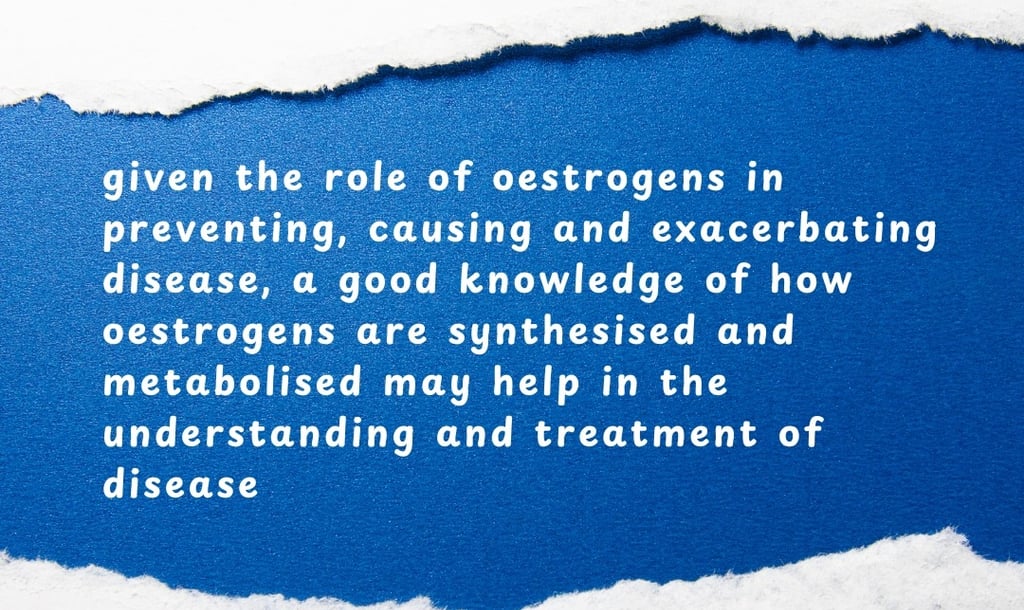Where Science Meets Holistic Women’s Health
Understanding Oestrogen Metabolism: A Functional Medicine Approach to Hormonal Balance
WELLNESS
5/10/20252 min read


Introduction to Oestrogen Metabolism
Oestrogen plays a crucial role in women's health, influencing numerous physiological processes. Understanding how the body metabolises this important hormone can shed light on common issues many women face, such as PMS and heavy periods. In this article, we explore the intricate pathways of oestrogen metabolism, emphasizing the liver and gut's roles and how functional medicine principles can be applied to achieve hormonal balance.
The Role of the Liver and Gut in Oestrogen Metabolism
The liver is the primary organ responsible for metabolising oestrogen. It transforms this hormone through a series of enzymatic processes into metabolites that can be easily excreted from the body. The gut also plays a vital role, as the gut microbiome can influence the reactivation or deactivation of these metabolites. A healthy liver and gut work hand in hand to ensure that oestrogen levels remain balanced, which is essential for overall well-being.
When oestrogen metabolism is disrupted, it can lead to an imbalance commonly referred to as oestrogen dominance. This condition can manifest as symptoms such as PMS, heavy menstrual bleeding, mood swings, and fatigue. Understanding the pathways of oestrogen metabolism in relation to the liver and gut can help identify the underlying causes of these symptoms.
Correcting Oestrogen Imbalance with Lifestyle Changes
Functional medicine principles stress the importance of holistic health, meaning that lifestyle changes can be the key to restoring harmony in oestrogen metabolism. One effective method is to increase the intake of cruciferous vegetables—foods such as broccoli, kale, and Brussels sprouts. These vegetables contain compounds that aid in the detoxification of excess oestrogen and promote the liver's ability to break it down effectively.
In addition to dietary modifications, maintaining a balanced microbiome is crucial for proper gut health. This can be achieved through probiotics, prebiotics, and a diet rich in fiber, which all support the gut's role in oestrogen metabolism. It's also essential to manage stress, as cortisol production can interfere with the hormonal balance. Incorporating regular physical activity, practicing mindfulness, and ensuring adequate sleep can directly influence oestrogen levels.
Conclusion
Comprehending oestrogen metabolism through the lens of functional medicine provides a robust framework for addressing hormonal imbalances. By understanding the complexities of how the liver and gut interact in metabolising oestrogen, women can take actionable steps to mitigate symptoms related to oestrogen excess. Making informed lifestyle choices, particularly increasing the consumption of cruciferous vegetables, can significantly improve hormone health and overall quality of life. By embracing a holistic approach, women can reclaim their hormonal wellness and enhance their vitality.


